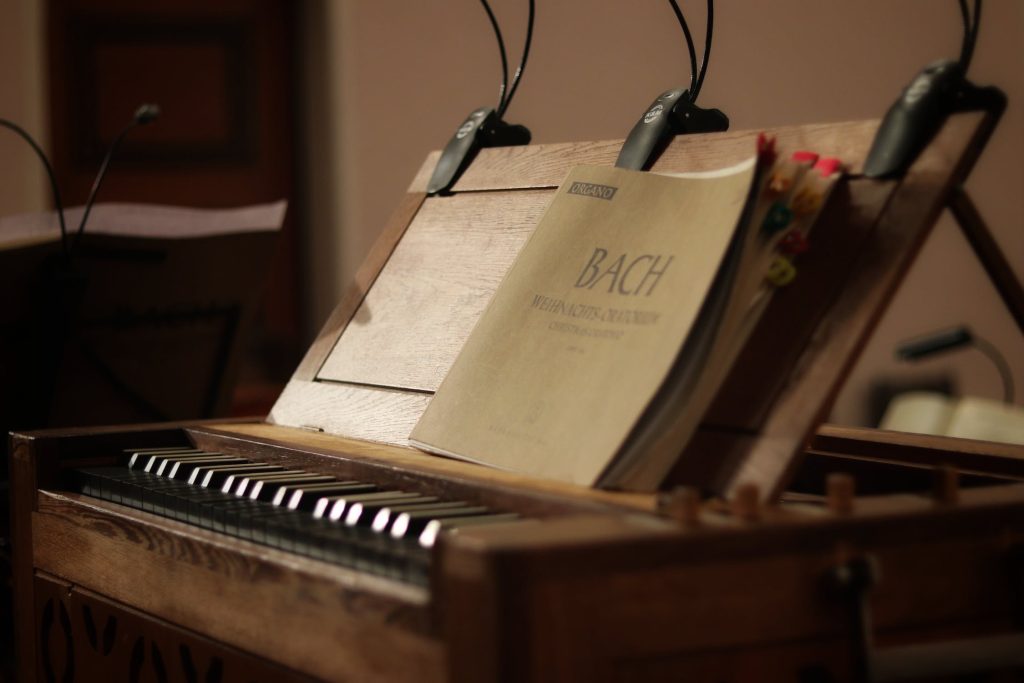
There are historical novels that carry you back to a place and time in such a way that you really believe what you are reading in a way you can never do with actual history. This is such a book.
James Runcie is best known for his popular “Grantchester Mysteries” series set in and around Ely cathedral. Born in 1959, he is the son of Robert Runcie, the former Archbishop of Canterbury. So he probably knows his way around a cathedral. Runcie’s works often blend elements of mystery, historical context, and character-driven storytelling. In addition to his fiction writing, he has produced an array of documentaries and dramas for television. His mother, Rosalind Runcie, was a pianist and character. She was notably not upstaged by her husband’s exalted position and would often arrange ivory tickling gigs to fit in with trips her husband needed to do for arch-bishoping purposes. This was a pretty good background to writing a book about a musician operating in a religious environment.
James Runcie was married to Marilyn Imrie, a radio drama and theatre producer. Marilyn Imrie like Runcie’s mother had a successful career in her own right, producing a variety of works for both stage and radio. She died August 2020, which was during the writing of this book. In an interview he said that this had no influence on the writing of the book. But it wouldn’t be surprising if it had. Bach’s life was full of and defined by death.
Johann Sebastian Bach faced considerable loss of people close to him throughout his life. As a child, he was orphaned by the age of 10, losing both his mother and father within a span of just a few months.
Bach married his cousin Maria Barbara Bach in 1707, and together they had seven children, though only four survived infancy. Maria Barbara herself died suddenly in 1720 while Bach was away.
Bach married again in 1721 to Anna Magdalena Wilcken, a talented singer. They had thirteen children together, though many did not survive infancy, and only a few lived to adulthood. Two of his more famous offspring, Carl Philipp Emanuel Bach and Johann Christian Bach, were from this marriage and became significant composers in their own right.
The death of close family members was sadly not uncommon in Bach’s time due to the state of medical care and the prevalence of diseases. Bach, like many others of his time, would have had a different relationship with death than most people do today.
Runcie captures this very well. We can’t know what it was like to live in a world where life was so precarious. But my feeling was that it must have been how the book portrays it. Stoicism is not so much a solution as the only option.
Was this behind the composition of the book’s title?
Johann Sebastian Bach’s “St. Matthew Passion,” BWV 244, is one of the most significant and revered works in the history of classical music. Composed in 1727, the piece is a sacred oratorio written for solo voices, double choir, and double orchestra. It is intended for performance in a liturgical context, specifically for Good Friday services.
Composing a piece like this to be performed by a large ensemble must’ve been quite hard work in the days before photocopies. The sheer amount of writing of music by hand is formidable. There would also be the question of finding performers up to the various tasks of the score. The logistics of getting them practised, equipped and in place at the right time would not be a picnic either.
It is frankly hard work to listen to as well.
The “St. Matthew Passion” is a monumental work not just in its length and complexity but also in its emotional depth and spiritual insight. It remains a cornerstone in the choral-orchestral repertoire and is performed worldwide, especially during the Christian liturgical season of Lent. But not really a toe tapper.
What I really liked about this book was I think it was an actual impression of what it would’ve been like to be around a genius like Bach or she was composing one of his greatest works. To achieve that I think the author has consciously chosen to avoid talking about stuff that might be of interest to readers. We don’t hear anything about the politics of the town, what Leipzig would’ve look like or even much about the Bach’s domestic arrangements. I didn’t miss them. There was plenty to keep me turning the pages without them.
